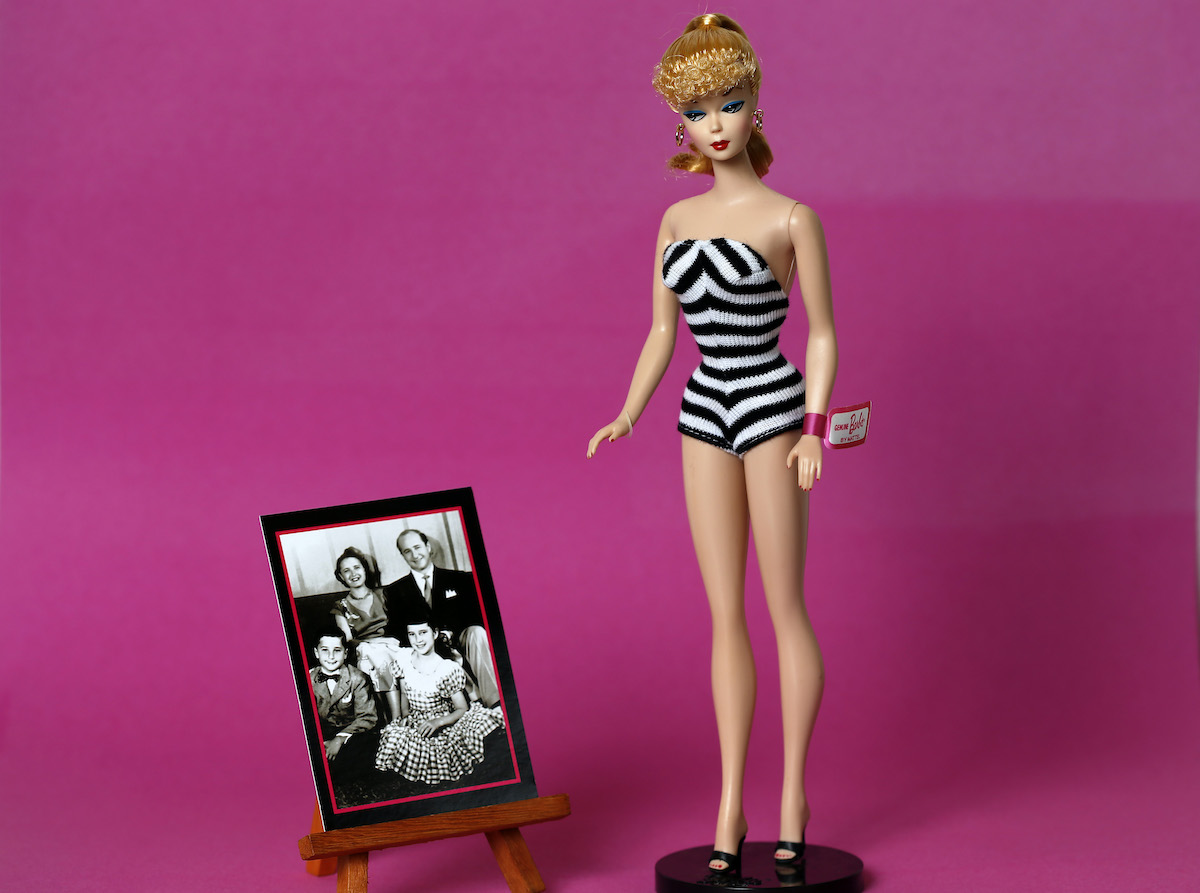Last month, while browsing through documentaries to watch to perpetuate my procrastination, I stumbled upon Hulu’s “Tiny Shoulders: Rethinking Barbie.” I didn’t even watch the trailer before pressing play. I was immediately intrigued by the 90-minute exploration of Barbie’s evolution as debatably the most iconic — and controversial — toy.
As I watched, I learned about Barbie’s origins and how the doll has adapted over the years with coinciding social movements and historical events. But what surprised and delighted me most about this documentary was discovering that Barbie is Jewish.
It may be hard to fathom that this beacon of blondeness and unattainable body proportions is also part of the tribe. But with a woman like Ruth Handler behind her, how could Barbie not be Jewish?
The daughter of Polish Jewish immigrants, Ruth Handler grew up in Denver and eventually relocated to Los Angeles with her new husband, Elliot Handler. Elliot and his colleague Matt Matson began manufacturing toys, solidifying their joint business venture with the company name “Mattel”—aka Matt + El(liot). In classic patriarchal fashion, Ruth was not included in the name, despite her founder status. Yet Ruth’s contributions to the corporation ultimately made a much larger impact than adding an extra “R” or “H” to Mattel ever could (Rattel? Mathel? Just doesn’t have the same ring).
Like many young, hungry women, Ruth had an idea. The days of baby and paper dolls were over. She wanted to create a doll for girls that resembled a grown woman. Ruth envisioned a doll with breasts and hips that girls could then dress up as anything they aspired to be. She named the doll Barbie, after her daughter, Barbara.
As I learned of Ruth’s story, I thought of my own family and the many other descendants of immigrants who passed through Ellis Island into the unknown with just the optimism of opportunity. For Ruth Handler, America allowed her to create something from scratch. Barbie is a product of the kinds of dreams so many Jewish immigrants had when they stepped off the boat and into the land of opportunity.
But I never saw myself in Barbie. Of course I loved Barbie for giving me hours of joy, utilizing my imagination, and developing the storytelling skills that I still use daily. My narrative voice began with Barbie, creating countless stories about her doing adult things, like leaving a party in her hot pink Jeep to go babysit. I loved Barbie, but I never found a Barbie that resembled me. There was an Italian princess Barbie with dark, long, wavy hair that came close, but I knew that she was supposed to be Italian. It bothered me that none of my dolls looked like me —I eventually received an American Girl look-alike doll, but it just didn’t quite cut it.
It wasn’t until watching this documentary and learning that Barbie’s origins are nearly identical to my own that I finally realized I could always find a piece of myself in Barbie.
My ancestors arrived in New York from the shtetls of Russia and Lithuania, only to pursue the American dream. With that history behind me, I grew up knowing that I could be anyone and anything that I wanted to be. My immigrant story has led to seemingly limitless agency, which was exactly what Ruth Handler hoped for her Barbie girls.
Of course, these days Barbie is often criticized for her perpetuation of unattainable Western beauty standards. Barbie played into the feminist discourse of the 1970s, representing the antithesis the movement. As Gloria Steinem notes in the film, “Barbie was pretty much everything the feminist movement was trying to escape from.” At the time, Barbie was perceived as a vapid figure only valued for beauty and an obedient lack of realistic ambition.
But “Tiny Shoulders” focuses primarily on Mattel’s 2016 Barbie update, in which they created a more diverse cast of dolls by expanding Barbie’s range of body shapes and sizes, facial features, and skin tones, with the hope that more young girls will be able to see themselves in the doll.
I’m happy that today’s generation of young girls are privy to a more diverse range of dolls than we’ve ever seen before. Representation matters, and seeing your identity and background reflected in a toy can make a real difference. If at age 5 I knew that my Barbie dolls were Jewish, created by a Jewish woman, I cannot even imagine the possibilities. So thank you, Ruth Handler, for the original Jewish doll.



